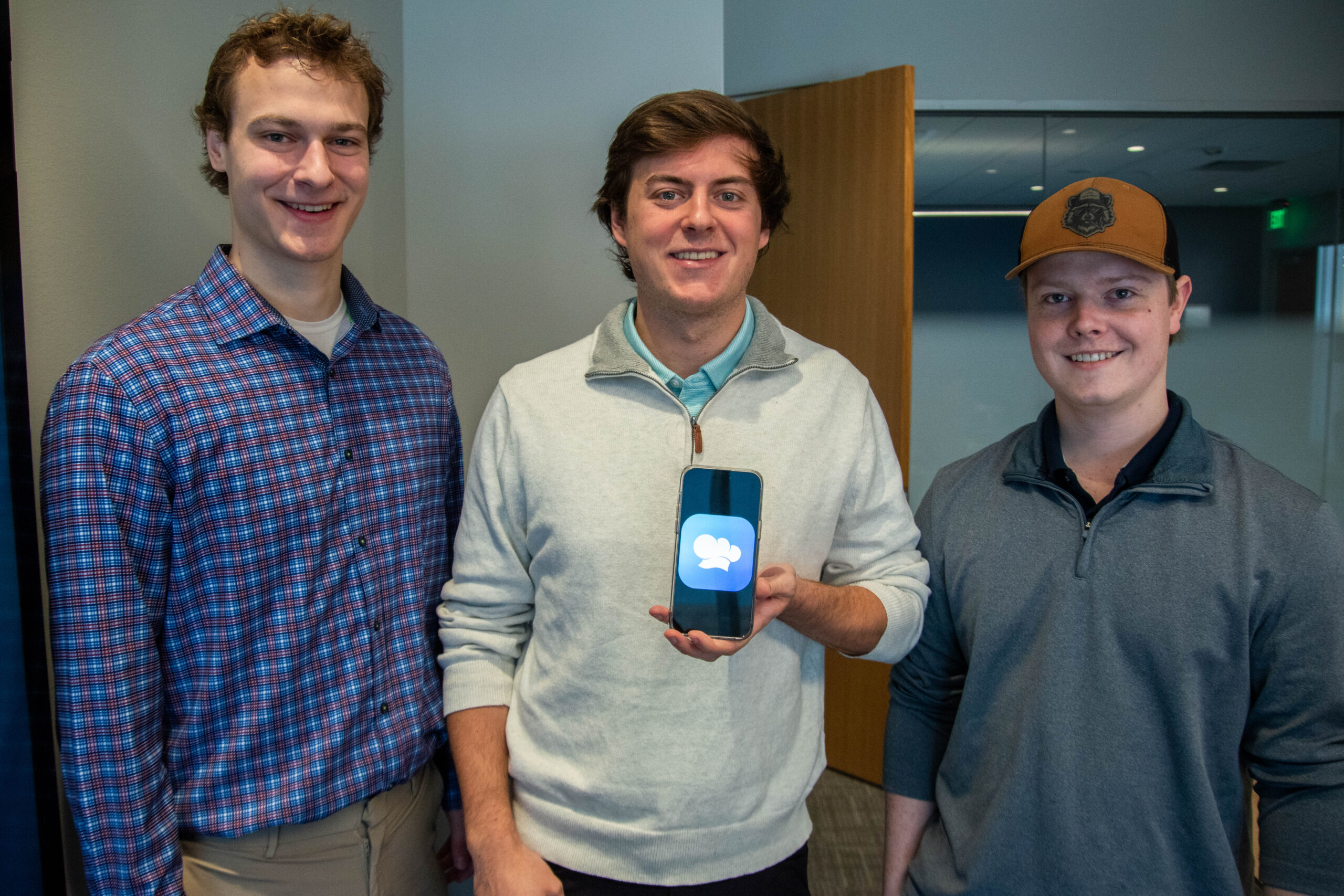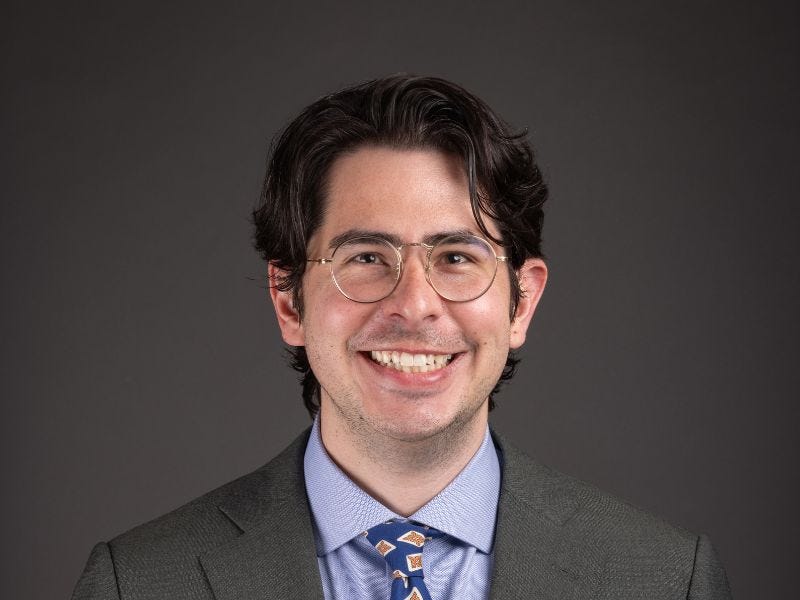Twenty-hour shifts were commonplace for the team behind Fresh Social in the weeks leading up to the app’s launch. Logan May, a member of the three-person team behind the app, fell asleep on his keyboard just a few nights before the beta version came out.
“We were probably putting in close to 120 hours every week just to get it ready to go for about two months leading up to the launch,” says Jaden Brozynski, a Class of 2025 graduate and triple major in finance, accounting and AIM.
“You have to have the drive because no one is holding you accountable but yourself,” adds May, a Class of 2025 triple major in AIM, finance and statistics.
Those hours behind the keyboard led to the creation of Fresh Social, an all-in-one consumer meal prep app. The idea was born in O’Brien Hall’s AIM Lab when co-founders May, Brozynski and Christopher Miklosy noticed how many steps were involved with planning a meal: go to a website, scroll to the end of the page for the ingredients, check your pantry and realize you’re missing a few things, copy it to your phone, go to the grocery store, buy the ingredients, open the page back up for the instructions.
What if all of that happened on one app?
“In our app, you can scan grocery receipts and kind of have a digital pantry where then we recommend something with what you currently have in stock,” Brozynski says.
That’s not all the app can do. Thanks to a partnership with Instacart, users can order groceries directly from the platform if they discover they’re missing ingredients. Recipe preferences can be customized by diet, allergy and other personal requirements. Each meal also comes with a complete health profile.
“You can track all your calories on the app in a way that’s easy to see and share,” says Miklosy, a Class of 2025 triple major in finance, accounting and AIM. “Chefs and personal trainers can also share their meal plans directly to their clients through our interface.”
AIM’s applied learning curriculum, which blends finance and technology, catalyzed the app’s creation. The three founders made the app through Structured Query Language, an advanced programming language that navigates large databases. A user’s login information is tied to their information, preferences and previous behaviors, creating a sort of road map through the database that makes the app useful. Many popular social media apps, such as Instagram and LinkedIn, use SQL for core functions.
“We can help users plan out their weeks without wasting groceries and having ingredients expire. We can really maximize the use of every ingredient.”
Jaden Brozynski, Class of 2025 graduate
Once the app was coded, the co-founders used their finance knowledge to value the app and figure out potential revenue streams. The founders zeroed in on the idea of signing deals with retail brands to be the first search result for each food item; if a customer searches for cheese, for instance, a brand like Sargento could pay to be the default option in the grocery cart.
To prepare for investor meetings, the founders ran their presentation through Venture Capital Bot, an AI tool designed by Assistant Professor of Practice Hunter Sandidge to rate and critique founders’ pitches.
The bot was not always kind.
“You’d give it your spreadsheets, your pro forma financial statements, your slide deck and maybe a one-page executive summary, and then the bot would just make you want to give up with its criticism,” Miklosy says. “I think it gave us a 60 percent grade our first time through.”
Critical feedback from Venture Capital Bot helped the Fresh Social team refine their pitch enough to raise $50,000 from early-stage investors, with more prospects on the way. Fresh Social is participating in both Marquette’s Brewed Ideas Challenge and the Big East Startup Challenge, which come with substantial cash prizes. They’ve even made it to the final round of consideration for inclusion in Y Combinator, a legendary Silicon Valley startup accelerator program that launched companies such as Reddit, DoorDash, Dropbox and Airbnb.
“As we try to expand, we need more servers to handle more people,” May says. “We need to make sure that everything’s functioning correctly and that we can support new partnerships. That all takes a lot of resources, which is where this investment is helpful.”
The app had its public launch in March and the founders are hoping to acquire 10,000 users to prove its feasibility to investors. They’re confident that consumers will quickly find it essential for their day-to-day lives.
“We can help users plan out their weeks without wasting groceries and having ingredients expire. We can really maximize the use of every ingredient,” Brozynski says.
AIM emphasizes value creation in all its activities. While most of its graduates will create that value for investment banks or Fortune 500 companies, Brozynski, May and Miklosy will use the lessons from AIM’s classroom to bolster home kitchens across the country.


